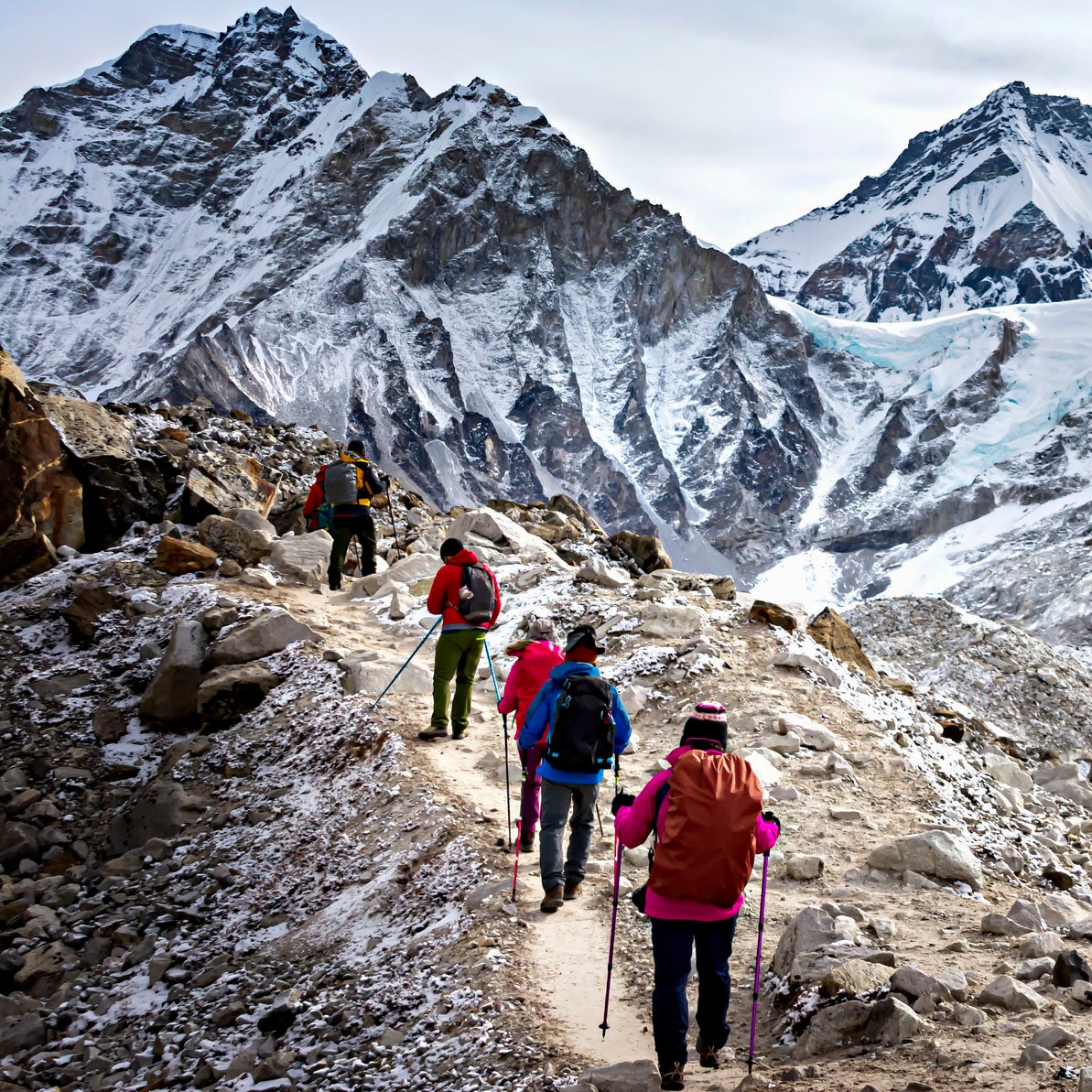Ukraine wants to keep Russian mountaineers off the world’s highest peaks.
Last week, officials with the Ukrainian embassy in New Delhi, India, wrote a letter to Nepal’s embassy in India asking the country to ban all Russian mountaineering teams from entering Nepal until Russia ends its invasion of Ukraine. ���ϳԹ��� was sent a copy of the letter, and an employee of the Consulate of Ukraine based in Kathmandu confirmed the legitimacy of the correspondence.
“Hoisting over the sacred and divine Nepalese mountains of the Russian flag-symbol of the state directly responsible for mass ruthless killings in Ukraine is the matter of deep moral concern,” the letter reads.
The Ukrainian embassy also forwarded the letter to Nepal’s tourism board, ministry of tourism, and mountaineering association. The latter two agencies oversee permitting for climbers hoping to ascend Mount Everest and the country’s other Himalayan peaks.
Kul Prasad Ghimire, president of Nepal’s mountaineering association, told ���ϳԹ��� he was not yet aware of the letter. But Ghimire said the request to block Russian climbers could force Nepali officials to make a complicated decision. While many officials may oppose the war, Nepal’s agencies rely on revenue generated by visiting climbers. Russia has historically sent multiple teams of climbers to Nepal for the mountaineering season.
“This is a difficult issue, because no one likes war,” Ghimire said. “We are also against the war, but this is the season for business in Nepal. We simply can’t ban travelers from an entire country because of their political position.”
While Russian sports teams and athletes have been barred from a wide range of international competitions, including indoor climbing events hosted by the International Federation for Sport Climbing, the request to limit participation in Himalayan mountaineering is different. Mountaineering lacks a governing body like the International Olympic Committee or the European Football Union, which can prohibit athletes from participating. Instead, climbers gain access through climbing permits and by paying to join expeditions.
The Ukrainian embassy isn’t alone in its request: Ukrainian mountaineer Irina Galay recently on social media to blacklist Russian climbers alongside the tagline #nopeacenoclimb.
“As long as the war is continued by the Russian people, by the Russian government, and by the Russian president, all Russians should be stopped and banned from having the privilege of climbing,” wrote Galay, who is the first Ukrainian woman to climb Mount Everest and K2.
The letter from the Ukrainian embassy comes on the heels of Nepal’s decision to vote in favor of a UN resolution censuring Russia’s invasion of Ukraine. Neighboring countries India and China both abstained from the vote.
Whether Nepal chooses to honor the request is yet to be seen. Nepal’s tourism industry is hoping for a rebound this year after two years of low visitation numbers amid the pandemic. In 2021, the Himalayan Database, a group that tracks mountaineering data in Nepal, 49 Russian climbers and 19 Ukrainians on peaks above 26,000 feet.
At least one Russian team is still planning to ascend Mount Everest. Website Explorersweb.com Alex Abramov, who operates a guiding company called 7 Summits Club. Abramov said he is going forward with an expedition to Mount Everest this spring with ten Russian climbers.
Mingma Gelu Sherpa, director of a Nepalese guiding company called Seven Summit Club, told ���ϳԹ��� that he opposes the war in Ukraine. Still, he says the economic benefits to Nepali guides outweigh the negative feelings toward the conflict.
“We don’t have a say in what’s happening between their countries,” Mingma said. “What we need is clients to come here so that Nepalis can have jobs.”
Russia’s invasion of Ukraine is already putting financial pressure on Nepal’s mountaineering companies. Nivesh Karki, the general manager of Nepalese expedition company Pioneer ���ϳԹ���, which does regular business with Ukrainian clients, said a team of 20 climbers from Ukraine recently canceled plans to ascend Everest, Annapurna, Makalu, Lhotse, and Kanchenjunga.
Another 60 Ukrainians canceled a trekking expedition, he said, as did clients from Belarus, Poland, Moldova, and Hungary.
With no end to the violence in sight, Karki fears that the war may curtail future expeditions—specifically ones that attract both Russian and Ukrainian climbers to the same mountain. “If the war prolongs, it will have a lasting impact on the expedition industry,” he said. “Ukrainian and Russian climbers will have to climb on a single rope at some point—if not this year, then in the years to come.”


